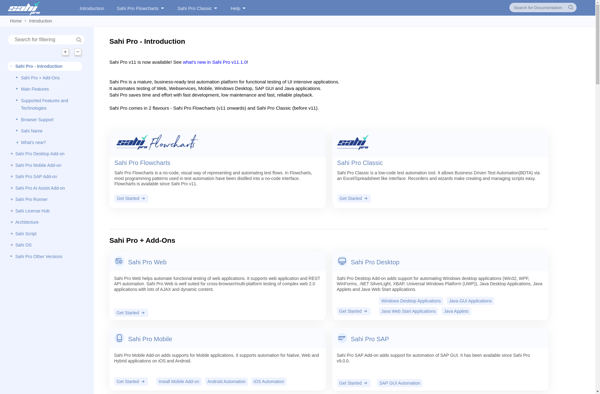Description: Watir is an open-source Ruby library for automating web browsers. It drives browsers the same way people do, enabling testing and scripting of web applications. Watir supports IE, Firefox, Chrome, Safari and Opera.
Type: Open Source Test Automation Framework
Founded: 2011
Primary Use: Mobile app testing automation
Supported Platforms: iOS, Android, Windows
Description: Sahi is an open source web application testing tool used for automating browser testing. It supports cross-browser testing and can simulate user actions like clicks, double clicks, drag & drop, etc. Sahi works by injecting JavaScript on web pages to monitor and drive the browsers.
Type: Cloud-based Test Automation Platform
Founded: 2015
Primary Use: Web, mobile, and API testing
Supported Platforms: Web, iOS, Android, API

